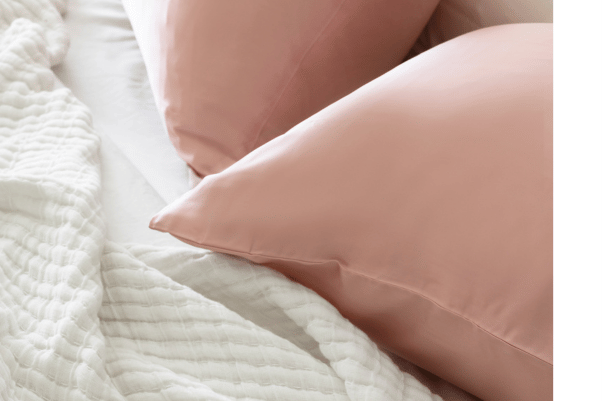Coping with stress is a normal part of everyday life, but when stress becomes chronic, it can significantly affect our mental health.
Whether caused by work pressures, family responsibilities, or unexpected negative events like a car accident, stress can damage the body and mind.
Chronic stress can lead to a range of physical symptoms such as headaches, muscle tension, and digestive problems, as well as emotional symptoms like anxiety, irritability, and depression. Managing stress is essential to maintaining a balanced and healthy life.
In this article, we’ll explore the causes of psychological stress and its impact on daily life. We'll also offer healthy ways to manage stress and discuss coping techniques that can help reduce anxiety, improve mood, and protect mental health.
Understanding Stress: What Is It and How Does It Affect Us?
The Causes of Stress
Stress can come from many sources: work, family, social obligations, and even current political or societal stress. A family member’s illness or personal health crisis can add to psychological stress. Researchers find that we experience stress when we feel overwhelmed and our coping mechanisms fail.
But it’s not just external risk factors. Internal factors like perfectionism or unrealistic self expectations can cause stress too.
Stress Symptoms
Chronic stress can show up physically and mentally. Physical symptoms usually include:
- Headaches and migraines.
- Muscle tension and fatigue.
- Stomach cramps and nausea.
- Sleep disturbances.
- Irritability and anxiousness.
Mentally, stress can affect your ability to focus, think clearly or maintain good relationships. Anxiety, irritability, and mood swings are common emotional responses to stress. If left unmanaged, stress can lead to depression or other serious mental health conditions.
The Ripple Effect: How Stress Affects Our Lives
Stress doesn't just affect us in isolation. It can spill over into our relationships, making us more irritable or withdrawn from family members. Chronic stress can have a big impact on work performance, social interactions, and even our physical health.
For instance, multiple studies show that individuals who frequently experience stress are at a higher risk of illnesses such as heart disease and depression. The stress we experience can alter our mood, making coping with other life challenges harder.
6 Easy Tips and Hacks to Cope with Stress and Enjoy a Calmer Lifestyle
The following tips could easily help to reduce your stress levels and teach you methods to positively deal with stressful situations. In the end, by practising a little self-care, you could easily become much calmer in general, and find it less challenging to deal with difficult situations.
1. Sleep is Essential to Manage Stress and Anxiety
Sleep is essential for our bodies and minds to wind down, restore, and rejuvenate itself. However, when we feel stressed or overwhelmed, it becomes difficult to tone down to a relaxed state that induces sleep. Research shows that experiences stress-related insomnia or disturbed sleep can add to psychological stress, making it even harder to cope the next day.
Sleep is the key to recovery from stress. When we’re well rested, we can manage stress better and our mood stabilises. Lack of enough sleep also increases anxiety and irritability and reduces our ability to think positively. It also affects our physical health, weakening our immune system and making us more prone to illness.
Creating the Perfect Sleep Environment
To enjoy a comfortable and proper night's sleep, it is vital to have the right environment and sleeping tools such as bedding, pillows, and linen. Overheating is something that could essentially interfere with a proper night's rest and therefore it is advised to use comfortable natural silk or cotton bedding and pillowcases that are breathable and temperature regulating.
Similarly, you also require complete darkness to fall asleep and enter deeper sleep stages, such as REM sleep stages, thus preventing you from waking up during the night. Often, tools such as sleep eye masks or block-out curtains are used to create a dark environment that is conducive to proper sleep.
A comfortable position and a peaceful environment are key to sleep, so consider making changes to your bedroom, such as to create a relaxing environment and the perfect conditions for deep sleep.
Sleep Hygiene Tips
Good sleep hygiene is one of the best ways to manage stress. Stick to a consistent bedtime, avoid caffeine and alcohol before sleep, and use relaxation techniques like deep breathing or progressive muscle relaxation to wind down.
A research-backed fact sheet on sleep hygiene would suggest creating a nightly routine that helps you transition from a stressful day to a restful night. A warm bath or shower and clean fresh pyjamas create a clean and relaxing mood that helps you transition into a more relaxed and restful state for sleeping
2. Mindfulness and Meditation: Rewiring Your Brain for Calm
Mindfulness is a powerful tool for reducing anxiety and managing stress. By focusing on the present moment, mindfulness techniques help ground you, making it easier to relax and avoid overthinking. Studies show that mindfulness practices like deep breathing and meditation can help lower cortisol levels and improve mood over time.
What Is Mindfulness?
Mindfulness is about being aware of your thoughts, feelings, and bodily sensations without judgment. Instead of dwelling on past mistakes or worrying about future stressors, mindfulness invites you to focus on the present moment. This practice can help you develop emotional resilience, especially when coping with various stressors.
The Science Behind Mindfulness
Multiple studies support the idea that mindfulness can help reduce stress, improve mental clarity, and even promote better physical health. For example, mindfulness-based relaxation exercises have the unique ability to reduce symptoms of anxiety and depression, making them an excellent coping technique for managing stress.
A Few Simple Techniques to Try:
- Deep Breathing - Close your eyes and take a few deep breaths in through the nose and out through the month. Practice this for a few minutes every day. Breathe in deeply for four counts, hold for seven, and exhale slowly for eight. This simple technique helps activate your parasympathetic nervous system, which calms your body’s stress response.
- Body Scan Meditation - This is truly a magnificent method of mindfulness that truly works. A technique where you mentally scan your body from head to toe, noticing areas of tension. By focusing on these sensations and breathing deeply, you can release physical stress and increase relaxation. You can also imagine yourself massaging your body from head to toe, placing light pressure on each part of the body in your thoughts while naming the body part in your head.
- Mindful Walking - Go for a walk and focus on your surroundings, the sights, sounds, and sensations of each step. This technique helps you reconnect with the present moment and reduce anxiety. It is also a method known as grounding, especially for persons experiencing an anxiety attack. The person could walk, stand or sit and use all their senses to ground themselves in their surroundings.
3. Exercise: The Power of Movement in Stress Relief
Physical activity is one of the best ways to manage stress. Not only does exercise improve your overall health, but it also reduces the physiological effects of stress, like high blood pressure and muscle tension.
Why Exercise Helps?
Physical activity helps your body release endorphins, chemicals that promote a positive mood and reduce stress. Regular exercise also helps prevent the buildup of cortisol, the stress hormone, making it easier to relax and focus. Whether it’s a brisk walk, a workout session, or yoga, physical activity can reduce the negative effects of stress.
What are the Best Types of Exercise for Stress?
- Yoga - A low-impact exercise that combines deep breathing and movement to promote relaxation and flexibility. Yoga is a great way to manage both physical and mental stress.
- Light Cardio - Activities like running, cycling, or swimming help release pent-up tension and boost your mood. These forms of physical activity can provide a mental break from daily stress.
- Strength Training - Lifting weights or engaging in resistance exercises helps build both physical and emotional strength. Regular strength training can boost self-confidence and reduce feelings of anxiety.
Developing an Exercise Routine
Exercise doesn’t need to be intense to be effective. Aim for 20 to 30 minutes of moderate physical activity several times a week. Consistency is key, so find an activity you enjoy and make it part of your routine. Exercise is truly one of the best methods to combat stress and depression.
4. Healthy Eating Habits: Fueling Your Body for Stress Resilience
What you eat can play a significant role in your ability to manage stress. A well-balanced diet helps regulate mood, stabilize energy levels, and support your overall health. Certain foods can reduce the physical symptoms of stress, while others, like alcohol, caffeine, and sugar, can actually contribute to anxiety and mood swings.
Healthy Foods to Eat for Stress Management
- Magnesium-Rich Foods - Magnesium helps relax muscles and calm the nervous system. Foods like spinach, almonds, and avocados are rich in magnesium and are beneficial for stress relief.
- Omega-3 Fatty Acids - Omega-3s, found in fatty fish like salmon, walnuts, and flaxseeds, help reduce inflammation and protect against the negative effects of stress.
- Antioxidant-Rich Foods - Foods like blueberries, dark chocolate, and leafy greens contain antioxidants that protect the body from stress-induced inflammation.
- Food Rich in B Vitamins - Foods rich in B vitamins and Amino Acids are popular and effective for reducing stress, aiding in reducing depression, and providing energy. They usually consist of protein-based foods such as lean meats, eggs, avocado, legumes and nuts.
Foods to Avoid
Certain foods can increase stress and negatively impact your health. Caffeine and alcohol can spike anxiety and disrupt sleep, while highly processed foods can contribute to inflammation. A healthy diet supports your ability to cope with stress, keeping you energised and resilient. Try to avoid the following foods to better cope with stress:
- Sugar - Excess sugar such as sugary drinks and sodas, sweets and confectionaries.
- Processed Foods - Processed starchy foods such as cake, cookies and baked goods usually contain large amounts of refined sugars and gluten.
- Alcohol - Alcohol may have a positive calming effect initially. However, in the long run, it essentially increases your blood pressure and heart rate, and worsens the symptoms and frequency of anxiety attacks.
- Caffeine - Caffeine is an excellent way to get a quick boost of energy. However, the energy does not last, and caffeine could leave you feeling more jittery, stressed and irritated.
5. Essential Oils and Natural Remedies for Stress Relief
For centuries, people have employed essential oils as home remedies to relieve stress and anxiety. Research shows that aromatherapy can help reduce the symptoms of stress by stimulating the limbic system, the part of the brain that controls emotions.
Top Essential Oils for Stress Relief
- Lavender - Known for its calming effects, lavender oil can help reduce anxiety and improve sleep.
- Peppermint - A refreshing oil that can boost mental clarity and alleviate stress-related headaches.
- Chamomile - Chamomile oil promotes relaxation and can be used to unwind after a stressful day.
Add essential oils to a diffuser for aromatherapy, or to bathwater to soothe muscles, maintain skin health, and add aroma. One could also apply essential oil topically to the body, clothes, and bedding for relaxation.
Candles infused with essential oils create a calming effect with dim light and the soothing aroma of essential oils.
6. Creating a Balanced Routine: Putting It All Together
The key to managing stress is consistency. By integrating stress-relief strategies into your daily routine, you can build resilience and prevent stress from overwhelming your life.
The Power of Consistency
The key to stress management is consistency. Whether it's mindfulness, exercise, healthy eating, or creating the perfect sleep environment, incorporating these practices into your life regularly will yield the best results.
Making Stress Management a Daily Habit
Start by adding one or two techniques to your routine. Gradually build habits that work for you, and remember to be patient with yourself along the way.
Conclusion: Take Control of Your Stress
Stress is something we all face at some point in our lives. It’s a normal part of everyday life, but if left unmanaged, stress can affect your mental, emotional, and physical health. Whether you’re dealing with chronic stress from work, family responsibilities or unexpected negative events like a car accident or health concerns, you need to recognise the signs and take steps to manage stress before it consumes you.
By incorporating healthy coping mechanisms like mindfulness, physical activity, relaxation exercises, a well-balanced diet, and good sleep, you can manage stress better. These methods not only reduce the immediate effects of stress but also protect your mental health in the long run. Research shows that regular practice of these stress relief techniques can reduce anxiety, improve mood and even improve your relationships with family and friends.
Remember to take care of yourself. If you ever feel overwhelmed, don’t hesitate to reach out to loved ones or consult a doctor for professional advice. Mental health is as important as physical health and having a routine that includes stress management is one of the best ways to take care of both. The ability to relax and reset is a skill that can improve every area of your life so take time to relax, recharge and make stress management a part of your daily life.
By practising these healthy ways to cope with stress, you can regain control, reduce anxiety, and lead a more balanced and fulfilling life.








